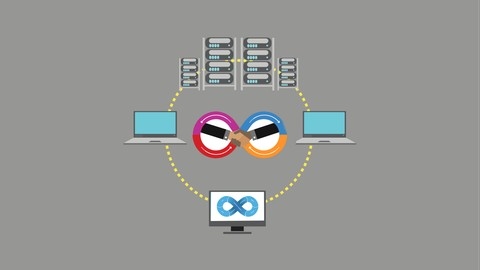Team Foundation Server (TFS) is a powerful tool for managing software development projects, but mastering it can be a challenge.
With its features for source control, work item tracking, build automation, and release management, TFS can streamline your development process and enhance collaboration.
Learning TFS can open up opportunities in various roles, such as software developer, project manager, or DevOps engineer.
Finding the right TFS course on Udemy can be overwhelming with so many options available.
You’re looking for a course that’s comprehensive, engaging, and taught by experts, but also fits your learning style and goals.
You want a course that covers the fundamentals as well as the latest features and best practices.
For the best TFS course overall on Udemy, we recommend Working with TFS 2015 Dev and QA focused.
This course covers the essential concepts and techniques for using TFS effectively, including version control, work item management, build automation, and release management.
You’ll learn how to set up and configure TFS, work with different types of work items, create and manage build definitions, and more.
While Working with TFS 2015 Dev and QA focused is our top pick, we also have other recommendations for different learning styles and goals.
Keep reading for more suggestions and find the perfect course for you!
Working with TFS 2015 Dev and QA focused
Best Udemy course for learning Team Foundation Server (TFS) 2015 fundamentals.
You’ll start with an introduction to TFS 2015, learning about its features and capabilities.
From there, you’ll dive into the installation and configuration process, setting up your team project and collection.
The course will guide you through your first check-in and check-out operations, familiarizing you with the core version control workflows.
One of the key areas covered is working with work items in TFS.
You’ll learn how to create and manage different types of work items, both through the web interface and the desktop client.
This is crucial for effective project tracking and collaboration within your team.
The course also provides in-depth coverage of the TFS build system.
You’ll learn about XAML builds, setting up build environments, and creating build definitions.
Additionally, you’ll explore the newer vNext build system, including installing agent pools, creating build definitions, and running unit tests as part of the build process.
Throughout the course, you’ll gain insights into essential TFS concepts like roles and permissions, ensuring you can properly manage access and security within your projects.
Release Management in TFS
Best Udemy course for learning Team Foundation Server (TFS) release management process with hands-on experience.
You will start by understanding the key concepts and current state of release management in TFS/VSTS.
The course dives deep into authoring a new release definition, linking it to your build definition, and determining what to deploy using artifacts.
You will learn how to define and use configuration variables, set up continuous release, and manage release naming and retention policies.
A significant portion of the course focuses on configuring environments, understanding their role, setting up approval workflows, selecting deployment queues, and working with deployment conditions.
You will also learn how to clone environments for efficient management.
The course covers the process of queuing a release and defining release workflows for both on-premises and Azure environments.
For on-premises releases, you will learn about copying files, running scripts, releasing web applications to IIS servers, and executing tests as part of the release process.
When it comes to Azure releases, the course teaches you about understanding Azure resources, configuring service endpoints for connecting to Azure, releasing Azure web applications, and executing tests as part of the Azure release process.
Notably, the course includes a section on running coded UI tests and unit tests during the release process.
Throughout the course, you will gain hands-on experience with essential release management tasks, such as managing artifacts, configuring variables, setting up environments, defining approval workflows, and executing tests, all within the context of TFS/VSTS.
WinOps - DevOps on the Microsoft Azure Stack:VSTS & TFS 2018
Best Udemy course for learning Agile methodologies and DevOps practices with TFS/VSTS.
You’ll start by learning the fundamentals of Agile methodologies and how they form the foundation for DevOps.
From there, you’ll dive into creating and managing your project backlog, storyboards, and work items.
This will equip you with the skills to effectively plan and track your development efforts using Scrum and Kanban techniques.
You’ll learn how to configure advanced settings for your Kanban board to optimize your DevOps process.
The course also covers creating dashboards and queries to visualize and analyze your project data.
You’ll explore different widget types and learn how to find and install additional widgets from the marketplace.
Work item search techniques will help you quickly locate the items you need.
As you progress, you’ll learn strategies for scaling Agile practices across your organization using DevOps processes.
This includes structuring VSTS and TFS for effective team collaboration and managing your project portfolio.
You’ll also learn how to set up alerts and notifications, integrate with external applications, and customize your process template to align with your team’s unique workflows.
You’ll gain hands-on experience with essential tools and techniques for managing the entire software development lifecycle, from planning and tracking to collaboration and process customization.



